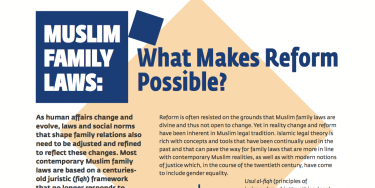This factsheet from The Advocates for Human Rights compiles the various regional legal and policy frameworks that mandate legislative action to address harmful practices. It categorizes frameworks by region for further utility.
Archives: Resources
Resources to be listed in Resources section page(s)
International Legal Framework for Harmful Practices
This resource from The Advocates for Human Rights, compiles the various elements of international law that make up the legal framework for addressing “harmful practices”. It summarizes key legal documents, their most important contents, and their importance in the field of human rights.
Anti-Rights Views: Pro-Life and Family Members States Reject Outcome Document at UN CPD
This resource is a news item from April 21st 2015 from ADF-International which describes itself as an organization working for freedom of religion, but which is the global partner of Alliance Defending Freedom, an anti-choice and anti-LGBT group based in the United States. The item documents their view of the negotiations at the 2015 United National Commission on Population and Development (CPD). It highlights the anti-SHRH position that many UN Member States took during discussions, including the removal of abortion or sexual health initiatives from the proposal in the name of “cultural” or “religious” values.
Addis Ababa Statement of Commitment
On 27-28 October 2009, over 400 delegates, including parliamentarians and ministers from around 115 countries, met in Addis Ababa, Ethiopia, for the fourth International Parliamentarians’ Conference on the Implementation of the ICPD Programme of Action (IPCI/ICPD)
Participants unanimously adopted the Addis Ababa Statement of Commitment, in which they pledged to exercise their oversight responsibilities to break the silence around gender discrimination and to promote sexual and reproductive health and reproductive rights.

Muslim Family Laws: What makes reform possible?
This brief from Musawah deals with the reform of Muslim family law.
As human affairs change and evolve, laws and social norms that shape family relations also need to be adjusted and refined to reflect these changes. Most contemporary Muslim family laws are based on a centuries-old juristic (fiqh) framework that no longer responds to contemporary Muslim realities. Law reform is one method for addressing social and economic changes and making our legal systems compatible with the actual needs of individuals and families today.
The brief includes
- The difference between shari’ah (total of religious values and principles that can guide Muslims’ lives) and fiqh (the process by which humans attempt to derive concrete legal rulings from Shari‘ah).
- The interpretation of Islamic concepts of ijtihad, ikhtilaf, darurah, maslahah, istihsan and istislah as open to the reform of Muslim family law.
- Examples of applying these concepts to reform current legal issues like unilateral divorce and wilayah (male guardianship in marriage).
